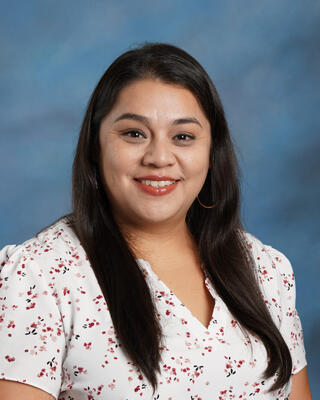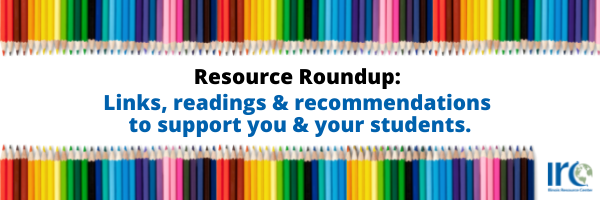 The IRC asked members of our community to nominate Illinois teachers working with multicultural, multilingual students who are going above and beyond, and now, we’re celebrating them and highlighting their work. Keep an eye out for these features in the coming months – and if you’d like to nominate someone, email leanet@cntrmail.org. Next up is Carolina Bonilla, a Bilingual Interventionist in Addison School District 4.
The IRC asked members of our community to nominate Illinois teachers working with multicultural, multilingual students who are going above and beyond, and now, we’re celebrating them and highlighting their work. Keep an eye out for these features in the coming months – and if you’d like to nominate someone, email leanet@cntrmail.org. Next up is Carolina Bonilla, a Bilingual Interventionist in Addison School District 4.
Says Bianca Magaña, who nominated her: “I am nominating Carolina Bonilla (Dual Language Interventionist) because of her exceptional dedication to supporting student learning in our Dual Language program. She goes above and beyond to ensure students achieve bilingual and biliterate goals, advocating for them and their families. Her involvement in various family events, committees, and district-wide initiatives showcases her commitment to the community and the success of the program.”
When Carolina Bonilla was in high school, she moved with her parents from Chicago to Addison. Now, she’s serving that same community as a Bilingual Interventionist, at the elementary school her husband, also an Addison native, attended. And that connection to the community informed her growth and intention in bilingual education and family engagement.
“Although I was learning about it myself because I was young, I could be a voice to our students and our families,” she says. “Because I felt like it was part of my community—it was our own family, cousins and family friends, and I wanted to support them.”
Carolina began her journey in bilingual education following her graduation from college, when there was a high need for bilingual educators. She received bachelor’s degree in education upon graduation but attained a Type 29 license to teach in bilingual or ESL settings until she was able to complete her endorsement. She began as a third grade teacher, and fell in love with the community she called home and stayed in Addison to finish her endorsement and continue working with bilingual students.
In her time from serving as a classroom teacher to Bilingual Interventionist, the dual language program at Addison SD 4 has evolved from a transitional bilingual education program to dual language, with an evolving two-way dual language program.
“That was very empowering to our families, students and staff as well,” she says. “We saw a change in the climate and the culture, a positive change, and it’s grown since then.”
A core tenet of Carolina’s work at Addison has been around family engagement. As the child of a family who had immigrated to the United States, she saw a need for advocating for immigrant and bilingual families and empowering them with knowledge to navigate the American school system. Initially, she began encouraging families from the community to join her first school’s PTA, informing them what the organization was and working with colleagues to host different sessions applicable to families and community members about navigating the educational systems.
“When our district began to grow the BPAC advisory council, I tried to reach out to families and make connections and learn a little more about how they could help advocate for their child in their school,” she says.
Carolina also says it’s important to make sure multilingual families are included, celebrated and empowered at school and community events. At her previous school, she helped host a multicultural night with food and dancing from different cultures represented in the district. At her current school, they wanted to incorporate welcoming all families into the classrooms, which led to a project, craft or activity where students showcased their heritage and culture.
She is also involved in the school’s Culture, Climate and Voice committee at my school as well as the Dual Language Committee in the district, and tied the two committees together to showcase student learning throughout the year. This initiative included a family project where students discussed their roots and heritage with their families, and designed a paper doll showcasing what they learned and their pride in their cultures. The paper dolls were then shown to parents at a family event.
Carolina’s advice for her fellow educators is simple – keep an open mind.
“We don’t know what’s going on behind closed doors,” she says. “It’s important to continue advocating for families and students in what’s within our own reach, within our own control. We can’t control what’s outside of school, but we can foster a safe and nurturing environment in our school for our students.”



